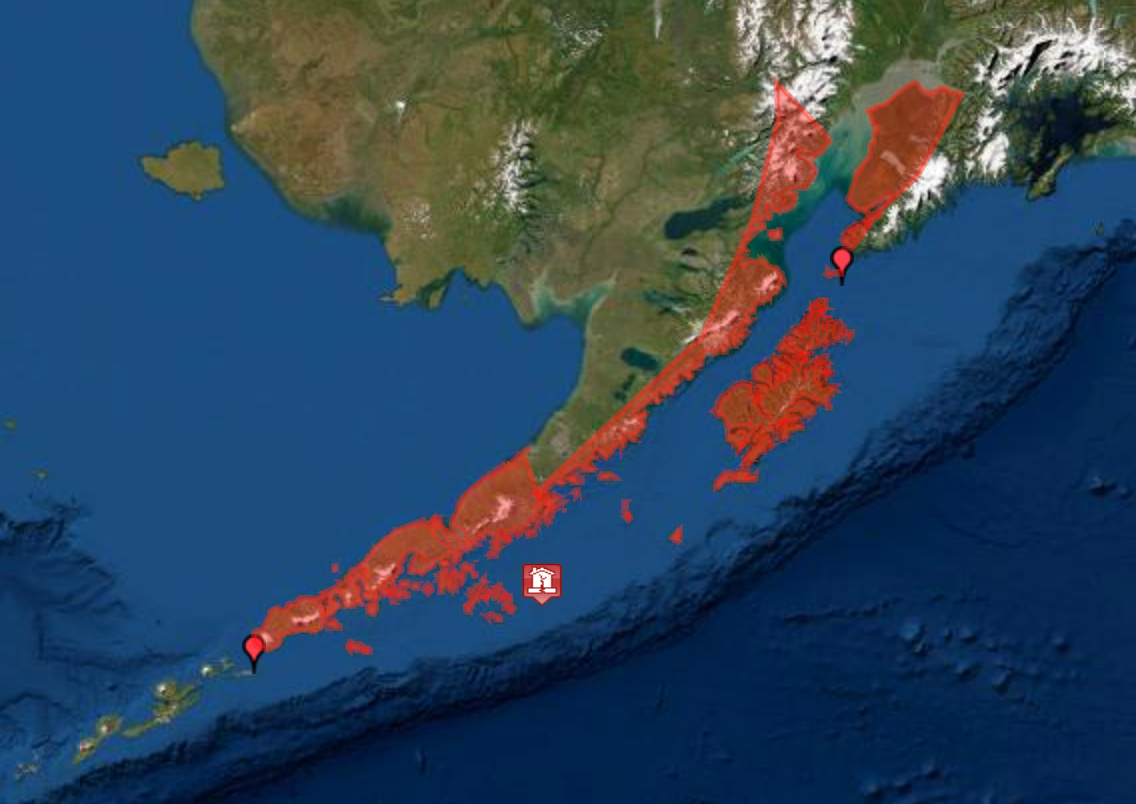Tsunami warning canceled after major earthquake strikes off Alaska
A magnitude 7.8 quake shook buildings, but not injuries were immediately reported.

ANCHORAGE — A magnitude 7.8 earthquake struck near the Alaska Peninsula late Tuesday, shaking buildings, but there were no immediate reports of injuries and the U.S. National Tsunami Warning Center canceled an earlier warning of potentially hazardous waves.
In Kodiak, the largest community in the earthquake area on an island south of Anchorage, some residents posted video on social media of people walking up to the high school, which was serving as a shelter, and of sirens sounding alarms.
The quake struck off the coast, 105 kilometers (65 miles) south-south east of Perryville, Alaska at a depth of 28 kilometers, according to the U.S. Geological Survey (USGS).
It had prompted the Tsunami Warning Center to issue a warning for the coastal areas of south Alaska, the Alaskan Peninsula and Aleutian Islands.
About two hours later, just after midnight, the center canceled the warning and said: “Check with local officials for all clear.”
Jeremy Zidek, spokesman for the Alaska Division of Homeland Security and Emergency Management, said emergency officials were trying to contact people in all the affected communities.
The closest is Sand Point, a town of about 1,000 on another island off the tip of the Alaskan Peninsula. Sand Point has evacuated and sounded its emergency sirens, Zidek said.
“I believe that there’s some damage from the shaking, but they have not been able to confirm that,” he said.
He added he had heard no reports of serious injuries.
Other towns had sounded their alarms and started evacuations, he said. It was unclear what damage may have occurred.
“Tomorrow they’ll get up and take stock of the damage in their communities,” said Zidek. “They can’t see anything in the dark, anyway.”
In Homer, a Kenai Peninsula town of about 5,800 people, residents in low-lying areas were told to use the city’s high school as a shelter, according to local public radio there. Public radio showed a short video of cars streaming from the beach spit to higher ground.
(Additional reporting by Rama Venkat and Radhika Anilumar in Bengaluru.